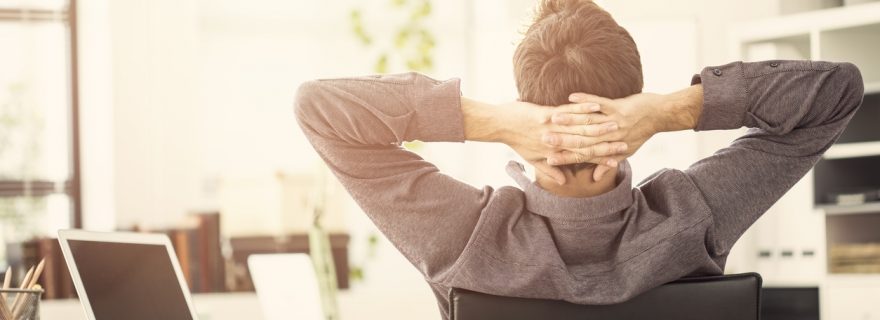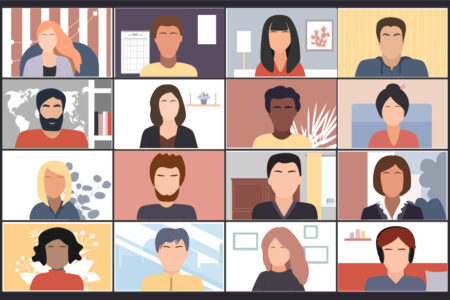Safety in times of corona
We human beings excel at worrying. We have a well-honed ability to think all about the distant future, and to anticipate all the happy and not-so-happy events that await us. When we are faced with problems we cannot solve, these problems continue to float around in our memories.
Originaly published in Dutch on piekeren.com
Every now and again these problems in our memories are presented to our consciousness (a phenomenon known as the 'Zeigarnik effect'). It’s an extremely useful phenomenon, because it ensures you won’t forget that you still have something you need to solve. But what if the problem is actually unsolvable? If the problems are so huge and complex that effectively all you can do is look on passively? Then there’s a big chance we will collectively wallow in worrying.
Unpredictability
That’s precisely the situation we now find ourselves in. The most recent insights from stress research teach us that our brains calm down and feel less need to worry when we feel safe. In safe situations, the frontal brain regions (the neocortex, which we use for relativizing, problem-solving etc.) suppress the emotional brain, which governs the stress reaction and reacts especially sensitively to unknown, uncertain, and unclear situations. The safety that dampens our emotional brain consists of, among other things, a certain degree of predictability and a sense of being in control. And this predictability and sense of control are exactly what is now lacking. How long will this all go on for? Unfortunately there are no concrete answers to this question. So for people who have difficulties with novelty, uncertainty, and lack of clarity, there is every reason to fall prey to severe worrying.
Lack of control
With the exception of policymakers or health professionals who are actively engaged in fighting the virus, and are thus directly involved in attempts to assert control (at least to avert danger to others), for many people there is in fact very little they can do. You can’t avert this crisis – but what can you do? How can you create some sort of sense of safety for yourself and those you love?
A few tips to increase your sense of safety
First and foremost, be aware that it is all too human not to feel great in these circumstances and to keep on thinking about all the problems and dangers out there. It’s ok to feel tense – it’s human nature. Like it or not, these sorts of circumstances trigger our fight-or-flight response (physical response) and cause us to worry (mental response). Don’t be too hard on yourself.
- Remember what you do have control over
Try to remember what you do have control over in relation to the corona virus. One thing you can do is to follow the RIVM’s guidelines. Those guidelines are there to help us tackle this problem. If you aren’t convinced, consider whether you might be able to have more control over them. If you find certain guidelines unclear, try to discuss them with the people around you: share your concerns. Don’t just scour the internet looking for the perfect answer. We will just have accept the fact that not everything is 100% clear and clear cut.
- Humans are creatures of habit
One of the things that make us feel safe is routine. So try to stick to your routine as much as possible. This will provide some sense of control and predictability. It won't always be easy (and don't be too hard on yourself: you'll need to adjust your expectations of yourself and others; you'll all be less productive, and maybe more easily irritated because of living at such close quarters), but there are some basic things you can influence:- Get up at your normal time.
- Keep to your normal morning routine (shower, get dressed etc.).
- If you can work from home, do so. To make a break between home mode and work mode, you could try starting with a short walk, or at least getting some fresh air in your garden or on your balcony. Try to imitate your normal routine as much as possible.
- Do you have children at home? Focus on them, or agree with your partner how you will provide home schooling or a daily routine: who will do what, and when? You'll find plenty of tips and ideas about this online.
- Allow yourself to switch off from corona sometimes.
It's perfectly all right to distract yourself by thinking of happy things, or watching a feel-good series on Netflix. I say this because we know from research that people who are prone to worrying prefer to stay on their guard, because they dislike vacillating between emotions (they don’t want to be caught off guard by emotions like fear and melancholy after they have succeeded in relaxing for a while). Constantly maintaining an undercurrent of concern about the corona problem (keeping up with the news, constantly checking the NOS app, reading Twitter, getting news updates on your phone) may give you some kind of feeling of control, but it’s an illusion. What you do have control over is how often you expose yourself to the news. You (and any people you live with) could decide only to check the news once or twice a day. The rest of the day is for focusing on the here and now, in your own life: on your work, your physical health, and the well being of those you love.
- If at all possible, try to keep a sense of perspective.
Of course, it would be extremely unpleasant and frightening for you or your loved ones to be infected by the virus, and we certainly shouldn't trivialize the issue. But as long as you are still in good health, you could equally use your intellectual abilities to think further ahead, to how we will look back on all this at the end of the year, for example. To overcome this crisis we need to work together, so think of the many positive initiatives that people have been coming up with, like those students who have thought up novel ways to help the elderly, for instance. But also consider how this crisis is making us more aware of our vulnerability (not a pleasant thought, perhaps, but a salutary one), how the huge reduction in travel is making the world a cleaner place, and how setbacks help us to strengthen our resilience. So what can you do now? To view it in terms of turning defeat into victory: what can we learn from this period?
Boost your body's own security mechanisms
- If you build up a lot of nervous tension in your body, there is a higher chance of you continuing to worry. Try to actively exert yourself, and to actively relax (worriers are often unaware of their levels of tension, which can cause them to get stuck in worrying mode for longer; the tips below may help you to break this habit):
- You can release physical tension (which may perpetuate your habit of worrying) by doing relaxation exercises, for example. Progressive relaxation, in which you first tighten and then relax your muscles, is an effective method to calm your body and reduce worrying, at least temporarily.
- Stay active. We’re still allowed to go outside (in the Netherlands, at least), so make the most of it: walk, do a bit of gardening, take some exercise. On YouTube you can find all sorts of workouts that will allow you to work up a sweat. We know from research that being active and exercising are important buffers against stress. Nature also has a beneficial effect on our stressed brain: we recover faster in natural surroundings than in an urban environment.
Even with social distancing, the group provides safety
Stay in touch with your loved ones, friends, and neighbours. From an evolutionary point of view, groups have always offered protection against external threats. Let's take advantage of that now, too, and convert our concerns into care. Even though we have to keep our distance physically, fortunately modern technology makes it very easy to stay in contact: Facetime, Zoom, Skype... the possibilities are endless. So do keep in touch. Share your worries. And look out for each other; that's what you should focus your energy on. There is much more control in helping your elderly neighbour than in anxiously scrolling through news items.





